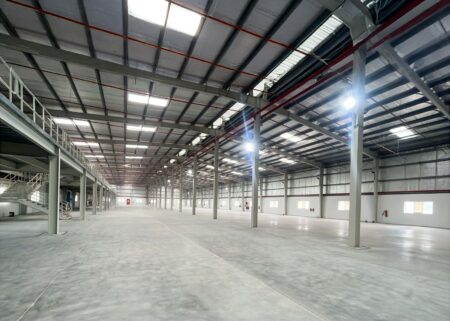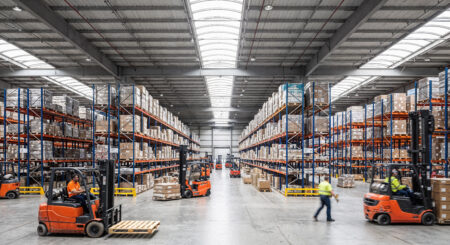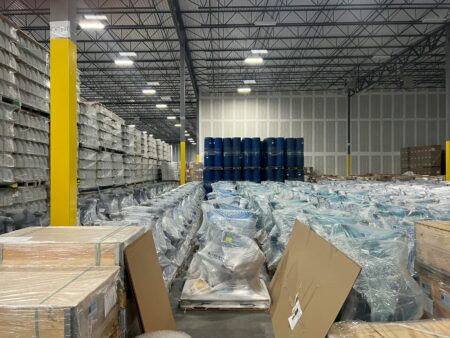Nitin Joshi discusses how automation and data analytics are reshaping Indian warehouses, enhancing efficiency with WMS, robotics, IoT, and AI. This shift promises smarter, more sustainable operations and competitive advantages in supply chain management.

Embracing sustainability and circular economy practices will reduce environmental impacts
Nitin Joshi, Head, Warehouse & Logistics, FABINDIA, discusses how automation and data analytics are revolutionising warehouse operations across India, enhancing efficiency and sustainability. Warehouse Management Systems (WMS) seamlessly integrate with ERP systems, optimising inventory and automating order processing in real-time. Technologies like Put-to-light and robotics streamline material handling, minimising errors and accelerating processing speeds. Data analytics and IoT devices like RFID tags and AI cameras provide real-time visibility, improving inventory tracking and accuracy. AI and machine learning refine inventory management and order fulfilment precision, supported by drones for swift inventory counts and surveillance. These advancements meet the growing demand for supply chain efficiency, marking a shift from traditional practices to a more interconnected, technology-driven approach in Indian warehouses, ensuring smarter, sustainable operations and heightened global competitiveness.
Sustainable innovations
Innovating toward sustainable warehousing in India involves tackling significant challenges like high investments and integrating new technologies with existing systems. Issues such as inadequate infrastructure also hinder progress. Yet, the shift offers opportunities to enhance efficiency, scalability, and safety, promoting sustainability. Automation, IoT, and cloud systems boost productivity and decision-making, reducing environmental impact and workforce strain. Despite hurdles, investing in smart warehouses promises efficiency gains, visibility, sustainability, and competitiveness, preparing businesses for future supply chain demands.
Leading companies prioritise sustainability by integrating green design: enhanced insulation, natural lighting, and motion-sensor LEDs. They emphasise water conservation, eco-packaging, and low-emission vehicles to cut energy use and costs. Trends include Advanced Energy Management Systems (EMS) for real-time energy optimisation, robotics for waste reduction, and circular economy principles for recycling. Investments in carbon offset projects, renewable energy, and carbon credits neutralise environmental impacts, enhancing resilience and competitive edge in the warehousing sector.
Space security
Optimising warehouse space in India involves innovative strategies like high-rise racking, ASRS, and dynamic slotting to maximse efficiency. Security measures include integrated CCTV, IoT monitoring, drone patrols, and cybersecurity protocols. These solutions ensure efficient, secure operations while minimising the urban footprint and enhancing safety and sustainability through comprehensive employee training and advanced technology integration.
Future trends
The future of warehousing in India is poised for a technological revolution with advancements in conveyor automation, robotics, AI, and real-time analytics. IoT proliferation will enable enhanced monitoring and seamless data sharing, while blockchain promises productivity boosts. Embracing sustainability and circular economy practices will reduce environmental impacts. Future warehouses will prioritise automation, data-driven decision-making, and sustainability, driven by IoT, AI, 5G, and blockchain. These technologies will bolster efficiency, resilience, and environmental stewardship, shaping a smarter, more sustainable supply chain ecosystem across India. Modernising warehousing operations requires strategic planning, beginning with comprehensive audits to identify inefficiencies and establish clear modernsiation goals. Investments in technologies like WMS and ASRS are crucial for real-time inventory management and efficient material handling. Prioritizing sustainability, leveraging data analytics, and fostering collaboration ensure businesses evolve toward smarter, more efficient, and more sustainable warehousing practices with robust security measures intact.











